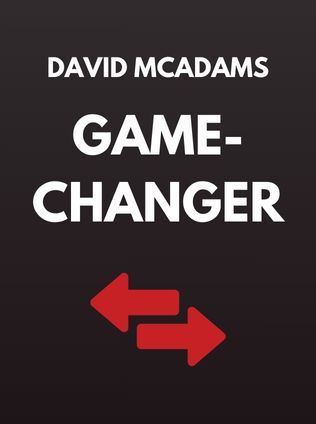
Game-Changer
Game Theory and the Art of Transforming Strategic Situations
By David McAdams
Published 01/2014
About the Author
David McAdams is a distinguished professor of Business Administration at the Fuqua School of Business and a professor of Economics at Duke University. His expertise lies in microeconomic theory and game theory, with a particular focus on the strategic interactions between buyers and sellers, encompassing auctions, pricing, negotiations, and relationships. His profound understanding and innovative approach to game theory have earned him recognition as a leading thinker in his field.
Main Idea
In "Game-Changer: Game Theory and the Art of Transforming Strategic Situations," David McAdams offers a transformative approach to strategy through the lens of game theory. He empowers readers to not only outsmart their rivals but to change the very games they play. The book provides six fundamental strategies to alter strategic situations: commitment, regulation, cartelization, retaliation, trust, and relationships. McAdams' work is filled with engaging examples from various fields, illustrating how these principles can be applied to achieve strategic success.
Table of Contents
- Introduction to Game Theory
- The Power of Commitment
- The Role of Regulation
- Cartelization and Cooperation
- The Dynamics of Retaliation
- Building and Leveraging Trust
- The Importance of Relationships
- Case Studies in Strategic Transformation
- Conclusion: Becoming a Game-Changer
Introduction to Game Theory
"Games" are strategic situations, and "game theory" is the art and science of strategy. As Raymond Smith explained in a 1996 Fortune magazine article, the game-theory approach to business requires "a different kind of corporate manager: flexible, intellectually rigorous, and highly tolerant of ambiguity" and "a special kind of company that nurtures a climate of open, frank, and relentlessly objective discussion so that all the variables are scrutinized honestly and without political repercussions." At the heart of the game-theory mindset is the recognition that the game can always be changed.
"The wise win before they fight," wrote Zhuge Liang, the great statesman, scholar, and military commander of China's Three Kingdoms period.
The wise win before they fight by recognizing all the games that could be played, steering the strategic environment in their favor, and then fighting with confidence in their ultimate victory. By contrast, the ignorant just play the game that lies before them, their victory or defeat largely out of their control, a matter of luck and fortune. Game-awareness helps protect you from the many dangers of not knowing what games you are really playing. Once you are truly aware of the games in your life, you can take steps to change them to your strategic advantage. Mastering this art will allow you to recognize and seize strategic opportunities that others do not see, giving you a significant advantage over your peers.
The Power of Commitment
Committing others to do what you want has an obvious appeal. If you can change what strategies others can play and/or change their incentives, you gain a strategic advantage by inducing them to take actions that benefit you. Commitments are only effective when made early enough (and visibly enough) to impact what others choose to do. Thus, anyone who commits needs to "move first," in the sense of committing before others make their decisions.
Influencing the Timing of Moves
"The early bird gets the worm." That may be true for birds, but in business, there isn't always an advantage to being first into a new market space. Many companies that are widely believed to be pioneers were, in fact, late arrivals to their categories: Kodak in cameras, Procter & Gamble in diapers, Xerox in photocopiers, and Apple in personal computers. These firms dominated their markets for years not because they did things first but because they did things best. Other times, being first is absolutely essential. In military battle, the side that positions itself first often enjoys a decisive advantage. In any battle, whether in business or war, the combatants' desire to win creates an adversarial dynamic that spills even into the question of who moves first.
Sign up for FREE and get access to 1,400+ books summaries.
You May Also Like
Rich Dad Poor Dad
What the Rich Teach Their Kids About Money - That the Poor and Middle Class Do Not!
By Robert T. KiyosakiFreakonomics
A Rogue Economist Explores the Hidden Side of Everything
By Steven D. Levitt and Stephen J. DubnerThe Lean Startup
How Today's Entrepreneurs Use Continuous Innovation to Create Radically Successful Businesses
By Eric RiesWho Moved My Cheese?
An Amazing Way to Deal with Change in Your Work and in Your Life
By Spencer Johnson, M.D.Factfulness
Ten Reasons We're Wrong About the World – and Why Things Are Better Than You Think
By Hans RoslingMake Your Bed
Little Things That Can Change Your Life...And Maybe the World
By William H. McRaven



















